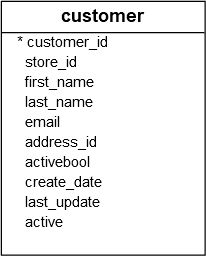Summary: in this tutorial, you will learn how to use the PostgreSQL CONCAT() function to concatenate two or more strings into one.
Introduction to PostgreSQL CONCAT() function
To concatenate two or more strings into a single string, you can use the string concatenation operator || as shown in the following example:
SELECT
'John' || ' ' || 'Doe' AS full_name;Output:
full_name
-----------
John Doe
(1 row)The following statement uses the concatenation operator (||) to concatenate a string with NULL:
SELECT
'John' || NULL result;It returns NULL.
result
--------
null
(1 row)Since version 9.1, PostgreSQL has introduced a built-in string function called CONCAT() to concatenate two or more strings into one.
Here’s the basic syntax of the CONCAT() function:
CONCAT(string1, string2, ...)The CONCAT function accepts a list of input strings, which can be any string type including CHAR, VARCHAR, and TEXT.
The CONCAT() function returns a new string that results from concatenating the input strings.
Unlike the concatenation operator ||, the CONCAT function ignores NULL arguments.
To concatenate two or more strings into one using a specified separator, you can use the CONCAT_WS() function.
PostgreSQL CONCAT() function examples
Let’s take some examples of using the PostgreSQL CONCAT() function.
1) Basic PostgreSQL CONCAT() function example
The following example uses the CONCAT() function to concatenate three literal strings into one:
SELECT
CONCAT ('John', ' ', 'Doe') full_name;Output:
full_name
-----------
John Doe
(1 row)2) Using the CONCAT() function with table data example
We’ll use the customer table from the sample database:
 The following statement uses the
The following statement uses the CONCAT() function to concatenate values in the first_name, a space, and values in the last_name columns of the customer table into a single string:
SELECT
CONCAT (first_name, ' ', last_name) AS full_name
FROM
customer
ORDER BY
full_name;Output:
full_name
-----------------------
Aaron Selby
Adam Gooch
Adrian Clary
Agnes Bishop
Alan Kahn
...3) Using the CONCAT() function with NULL
First, create a table called contacts and insert some rows into it:
CREATE TABLE contacts (
id SERIAL PRIMARY KEY,
name VARCHAR(255) NOT NULL,
email VARCHAR(255) NOT NULL,
phone VARCHAR(15)
);
INSERT INTO contacts (name, email, phone)
VALUES
('John Doe', '[[email protected]](../cdn-cgi/l/email-protection.html)', '123-456-7890'),
('Jane Smith', '[[email protected]](../cdn-cgi/l/email-protection.html)', NULL),
('Bob Johnson', '[[email protected]](../cdn-cgi/l/email-protection.html)', '555-1234'),
('Alice Brown', '[[email protected]](../cdn-cgi/l/email-protection.html)', NULL),
('Charlie Davis', '[[email protected]](../cdn-cgi/l/email-protection.html)', '987-654-3210')
RETURNING *;Output:
id | name | email | phone
----+---------------+---------------------+--------------
1 | John Doe | [[email protected]](../cdn-cgi/l/email-protection.html) | 123-456-7890
2 | Jane Smith | [[email protected]](../cdn-cgi/l/email-protection.html) | null
3 | Bob Johnson | [[email protected]](../cdn-cgi/l/email-protection.html) | 555-1234
4 | Alice Brown | [[email protected]](../cdn-cgi/l/email-protection.html) | null
5 | Charlie Davis | [[email protected]](../cdn-cgi/l/email-protection.html) | 987-654-3210
(5 rows)
INSERT 0 5Second, use the CONCAT() function to concatenate the values in the name, email, and phone columns of the contacts table:
SELECT
CONCAT(name, ' ', '(', email, ')', ' ', phone) contact
FROM
contacts;Output:
contact
--------------------------------------------------
John Doe (john@gmail.com) 123-456-7890
Jane Smith ([[email protected]](../cdn-cgi/l/email-protection.html))
Bob Johnson ([[email protected]](../cdn-cgi/l/email-protection.html)) 555-1234
Alice Brown ([[email protected]](../cdn-cgi/l/email-protection.html))
Charlie Davis ([[email protected]](../cdn-cgi/l/email-protection.html)) 987-654-3210
(5 rows)The output indicates that the CONCAT() function ignores NULL.
Summary
- Use the PostgreSQL
CONCAT()function to concatenate two or more strings into one.